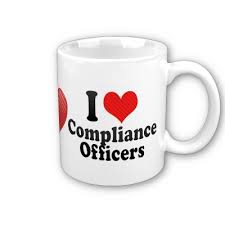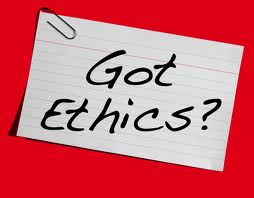The CCO – not the CEO – Creates an Ethical Culture
 Consider it one of my (many) pet peeves – companies claim they have an “ethical” culture and cite the consistent statements by the CEO of his or her commitment to “ethics and integrity.” That’s it, that’s all, we have an ethical culture. Case closed, deal done, let’s move on to the next issue.
Consider it one of my (many) pet peeves – companies claim they have an “ethical” culture and cite the consistent statements by the CEO of his or her commitment to “ethics and integrity.” That’s it, that’s all, we have an ethical culture. Case closed, deal done, let’s move on to the next issue.
Talk about bloviating and hot air – it is the prime example of internal corporate delusion, or people who have drunk the kool-aid. I do not mean to be so harsh but statements of integrity and ethics are fine as they exist by themselves but everyone knows there is much more to the story.
I have to admit that it is harder to create an ethical culture if your CEO is unwilling to make such broad pronouncements. But it galls me to see companies claiming an ethical culture based on these mere statements alone. Every CCO knows that an ethical culture is developed in the trenches, through hard work and commitment.
In reality, the CCO creates an ethical culture. The CEO may set a “tone-at-the-top” but it is the CCO who takes the tone and turns it into a real culture. The trick for any CCO is learning how to maximize the advantages from a CEO who is willing to make such statements and commitments.
A CCO operates inside a company much like a politician, carrying a banner of ethics and compliance and linking it to financial performance. The CCO builds constituencies in the company, develops alliances, and makes deals all the time – you help me on this issue and I can help you on that issue.
A CCO has two important currencies – information/data concerning business operations and assurances that a division, office or operation is conducting business in compliance with the law and the company’s code of conduct.
This currency is even more valuable if the business operations are committed to expansion through acquisition. CCOs play a critical role in acquisitions since they have to bless the acquisition from a compliance standpoint – a company should always avoid acquisitions where successor liability could have disastrous consequences.
 CCOs sit in a unique position – they are responsible for an important aspect of the company’s global operations – ethics and compliance. They bear responsibility for actions by employees, managers, and senior management. They have a broad mandate and should quickly convert that into broad authority. It is up to the CCO to develop those issues, seek the resources and authority they need, and then carry it out.
CCOs sit in a unique position – they are responsible for an important aspect of the company’s global operations – ethics and compliance. They bear responsibility for actions by employees, managers, and senior management. They have a broad mandate and should quickly convert that into broad authority. It is up to the CCO to develop those issues, seek the resources and authority they need, and then carry it out.
Along the way, CCOs have to repeat the mantra – ethical companies are more profitable. Ethics means profits, compliance means revenues, and ethics and compliance together mean increased shareholder value.















